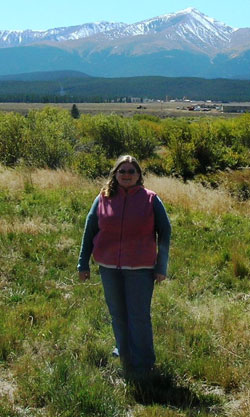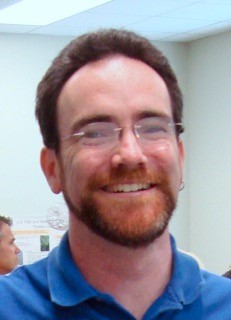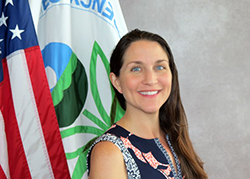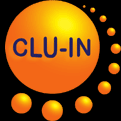Ecosystem Services - Benefits and Considerations for the Cleanup of Contaminated Mine Sites
Sponsored by: U.S. EPA, Office of Superfund Remediation and Technology Innovation, Technology Innovation and Field Services Division
One way to characterize and improve the benefits of environmental cleanups is to use concepts of "ecosystem services", those benefits that nature contributes to human health and well-being. Join us to learn about how we may consider ecosystem services in cleanup of contaminated site cleanups. This two-part webinar will first introduce ecosystem services concepts from a contaminate site cleanup perspective and discuss ongoing efforts at EPA to connect ecosystem services concepts, tools, and frameworks to different aspects of cleanups. The second part will introduce examples of mine cleanups that have elements relevant to ecosystem services with an overall goal to tee up innovative ideas for characterizing and improving the benefits of environmental cleanups. Overall, an understanding of ecosystem services concepts can be helpful to ecological risk assessors and cleanup project managers working on sites looking for enhancing environmental benefits in their projects.
Accessibility, Recording, and Content Disclaimer
Rehabilitation Act Notice for Reasonable Accommodation
It is EPA's policy to make reasonable accommodation to persons with disabilities wishing to participate in the agency's programs and activities, pursuant to the Rehabilitation Act of 1973, 29 U.S.C. 791. Any request for accommodation should be made to at or , preferably one week or more in advance of the webinar, so that EPA will have sufficient time to process the request. EPA would welcome specific recommendations from requestors specifying the nature or type of accommodation needed. Please note that CLU-IN provides both alternate phone call-in options and closed captioning for all webinars, and requests for these specific accommodations are not necessary.
Webinar Recording
By participating in this CLU-IN webinar, you automatically agree to authorize recording of audio and visual content presented during this live event and consent to subsequent use of this recording in the public domain by the U.S. Environmental Protection Agency. This recording may include questions, comments and poll responses provided by you during the live event in addition to your name, voice, image or likeness. This recording will be made available after the conclusion of the live event as part of the CLU-IN webinar archives, and will remain available indefinitely. If you do not wish to consent to the recording, please do not join the live event, and contact Jean Balent at 202-566-0832 or balent.jean@epa.gov to discuss your concerns.
Content Disclaimer
This webinar is intended solely to provide information to the public. The views and opinions expressed as part of this webinar do not necessarily state or reflect those of the U.S. Environmental Protection Agency. It is not intended, nor can it be relied upon, to create any rights enforceable by any party in litigation with the United States, or to endorse the use of products or services provided by specific vendors. With respect to this webinar, neither the United States Government nor any of their employees, makes any warranty, express or implied, including the warranties of merchantability and fitness for a particular purpose, or assumes any legal liability or responsibility for the accuracy, completeness, or usefulness of any information, apparatus, product, or process disclosed, or represents that its use would not infringe privately owned rights.
Presenters:
 Michele Mahoney, U.S. EPA Technology Innovation and Field Services Division (mahoney.michele@epa.gov or 703-603-9057)
Michele Mahoney, U.S. EPA Technology Innovation and Field Services Division (mahoney.michele@epa.gov or 703-603-9057)
Michele Mahoney is a Soil Scientist working on issues related to remediation and reuse of contaminated sites within EPA's Superfund program. In order to support practitioners, she researches and reports on knowledge related to treatment technologies for mining sites, use of soil amendments for remediation and redevelopment/reuse, ecological revitalization, ecosystem services, phytotechnologies, and urban gardening. Michele develops and delivers training for the world-renown EPA Clean-Up Information Network (www.cluin.org), particularly a Mining Webinar Series, and topics related to Superfund Redevelopment, Ecological Revitalization, Ecosystem Services, and Phytotechnologies. She also creates and manages content development for the EcoTools and Mining pages on CLU-IN.org.
Michele has worked with EPA for over 20 years. Prior to her current responsibilities, Michele served the Agency as the lead for food waste composting issues and as an environmental fate and ecological risk assessor for pesticide registration. Michele also has experience as a Contractor for EPA and a Laboratory and Field Researcher.
Michele earned a M.S. in Soil Science from the Washington State University, and a B.S. in Agronomy & Environmental Science from Delaware Valley University.
 Matt Harwell, U.S. EPA Office of Research and Development (ORD) (harwell.matthew@epa.gov)
Matt Harwell, U.S. EPA Office of Research and Development (ORD) (harwell.matthew@epa.gov)
Dr. Matt Harwell is an ecologist with the US EPA's Office of Research and Development (ORD). Matt's areas of specialization include ecosystem assessment, integration and communication of science for decision makers, adaptive management, ecosystem services, and ecosystem restoration. In his current role, Matt helps lead ORD's national research portfolio on ecosystem services science to support community, ecosystem, and contaminated site cleanup decision making.
Moderator:
 Jean Balent, U.S. EPA Technology Innovation and Field Services Division (balent.jean@epa.gov or 202-566-0832)
Jean Balent, U.S. EPA Technology Innovation and Field Services Division (balent.jean@epa.gov or 202-566-0832)
Ms Balent is on the staff of the EPA's Technology Innovation and Field Services Division where she has worked to collect and disseminate hazardous waste remediation and characterization information since 2003. Ms Balent manages the Clean Up Information Network website and actively supports online communication and collaboration resources available to EPA. She formerly worked with the US Army Corps of Engineers Environmental Engineering Division in the Buffalo District. Ms Balent was also a member of the SUNY-Buffalo Groundwater Research Group where she constructed and tested large scale models of groundwater flow. Ms Balent has also conducted research relating to the Great Lakes, environmental remediation, and brownfields re-development. She holds a Bachelor's degree in environmental engineering from SUNY-Buffalo and a Master's degree in Information Technology from AIU.
Webinar Slides and References:
Webinar Slides and References:
-
 Slide Presentation for Michele Mahoney, and Matt Harwell, Ph.D.;U.S.EPA (2.98MB/PDF)
Slide Presentation for Michele Mahoney, and Matt Harwell, Ph.D.;U.S.EPA (2.98MB/PDF)
-
 Slide Presentation for Michele Mahoney, and Matt Harwell, Ph.D.;U.S.EPA (1.54MB/PDF)
Slide Presentation for Michele Mahoney, and Matt Harwell, Ph.D.;U.S.EPA (1.54MB/PDF)
Additional Resources:
- These materials will be available by
Thank you for participating in our webinar. We would like to receive any feedback you might have that would make this service more valuable.
Help & FAQs
Zoom Resources
This seminar will be delivered through Zoom. Participants are encouraged to update to the latest version of the Zoom application for the best experience. If you are unable to install the Zoom application, most functions will be available if you join just using a modern web browser such as Chrome, Edge or Firefox. We strongly encourage you to run the Zoom Meeting Test prior to attending this seminar. Technical support on the day of the seminar will be very limited and subject to significant delays.
Rehabilitation Act Notice for Reasonable Accommodation
It is EPA's policy to make reasonable accommodation to persons with disabilities wishing to participate in the agency's programs and activities, pursuant to the Rehabilitation Act of 1973, 29 U.S.C. 791. Any request for accommodation should be made to at or , preferably one week or more in advance of the seminar, so that EPA will have sufficient time to process the request. EPA would welcome specific recommendations from requestors specifying the nature or type of accommodation needed, such as closed captioning.
with any additional questions
If you have a suggested topic or idea for a future CLU-IN internet seminar, please contact:
Technology Integration and Information Branch
PH: 202-566-0832 | Email: balent.jean@epa.gov
Technology Integration and Information Branch
PH: 202-566-0875 | Email: adam.michael@epa.gov





